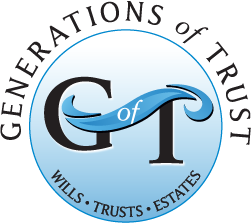
One of the most common questions I’m asked is “Do I need a Trust?” There is not a one size fits all answer to that question. Some people it is very clear and recommended. However, most people are in a gray area as to whether they need one. A Trust is rarely a bad idea for anyone, but it make more sense for some than for others. It is important to examine the goals of the clients to see the most important
Benefits
The most common reasons clients want a trust is because it avoids probate. If you have your assets properly titled and/or correct beneficiaries on all assets, then there is rarely a need for probate. This can simplify asset distribution upon a client passing away and make it faster and less expensive than probate. There are, however, some circumstances where probate is a good idea. Another benefit is that the Trust can give you some ‘control’ of your assets after you pass away. For instance, if one of your beneficiaries is not very good with money and you are afraid he or she will spend their inheritance the first weekend they get it, a trust can set up parameters for a longer distribution period or distribution at a certain age or life event. Finally, a Trust can give you and your beneficiaries some privacy. In Florida with a Will, when you pass away, your Will gets filed with the Court and it becomes public record who your beneficiaries are and what percentage they are receiving. A Trust is never filed with the Court (unless there is litigation) so your beneficiaries remain anonymous. Only the fact that you had a Trust and who the Trustee of the Trust is will become public record after you pass away. There may be other benefits of a Trust for your unique circumstance. It’s a good idea to discuss the benefits with an experience estate planning attorney.
What a Trust Doesn’t Do
There are many common misconceptions on what a Trust does or doesn’t do. A Revocable Trust does not provide any asset protection in Florida If you are in a car accident and it’s your fault. The injured person could come after assets held in your Revocable Trust (with the possible exception of your homestead). A Trust also does not protect from claims of creditors after someone passes. Revocable Trust assets are included in your gross estate for Federal Estate Tax purposes. Additionally if you are trying to qualify for Medicaid, a Revocable Trust asset is viewed through Medicaid as being one of your assets.
To discuss your Estate Planning and Trust goals and to create an estate plan that works best for you, please contact us to schedule an appointment.
